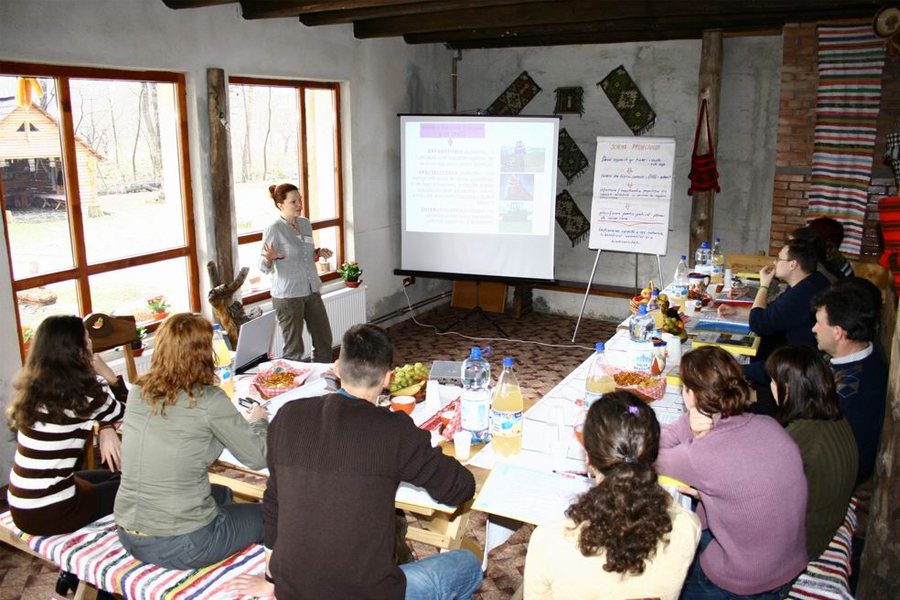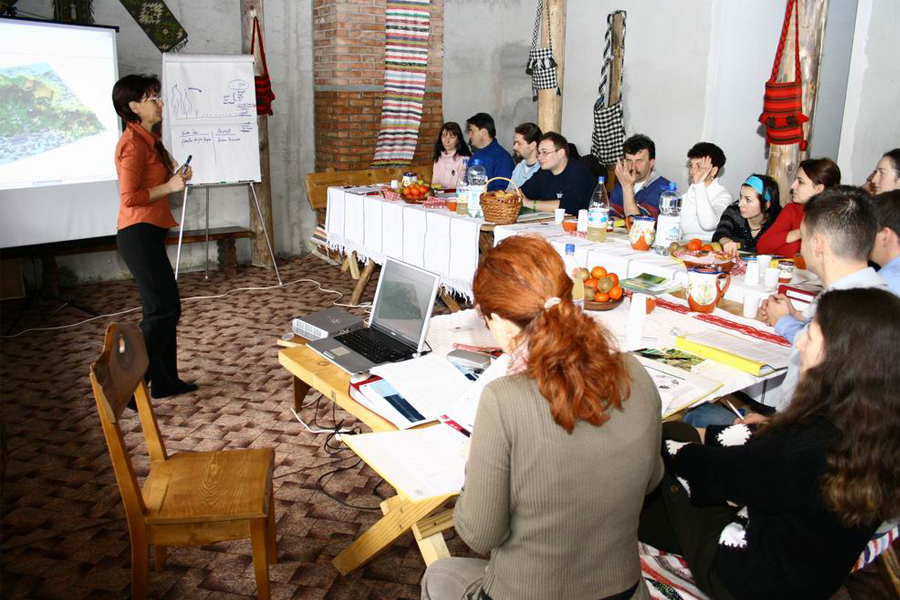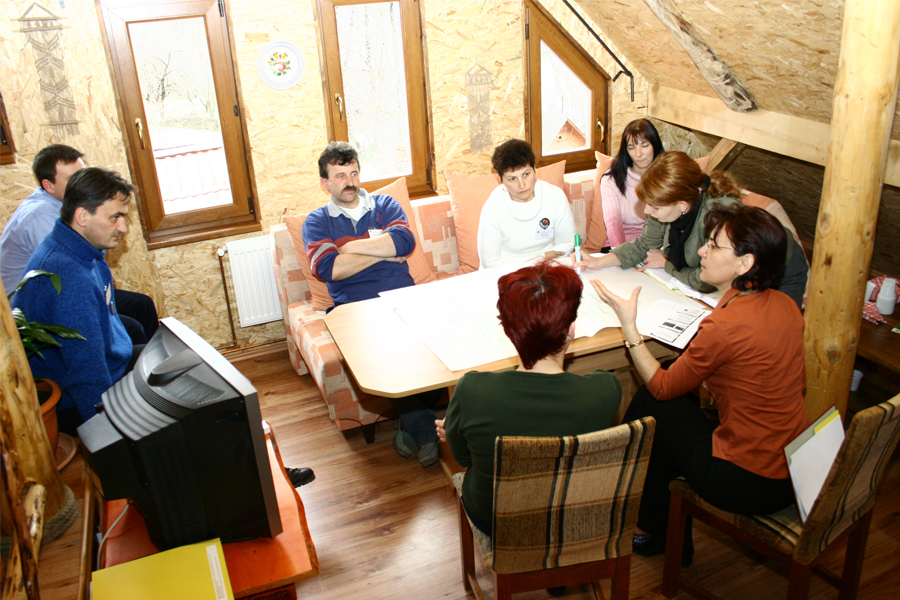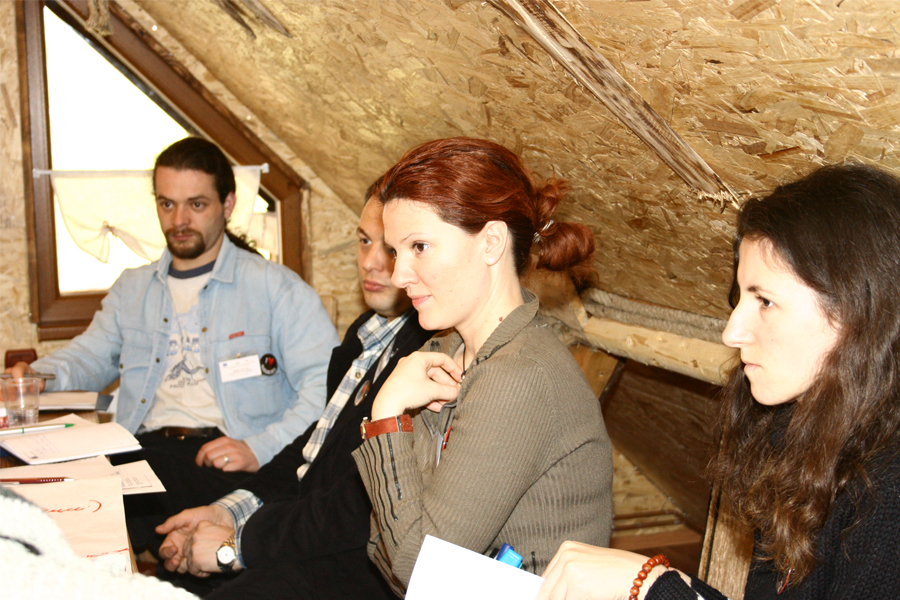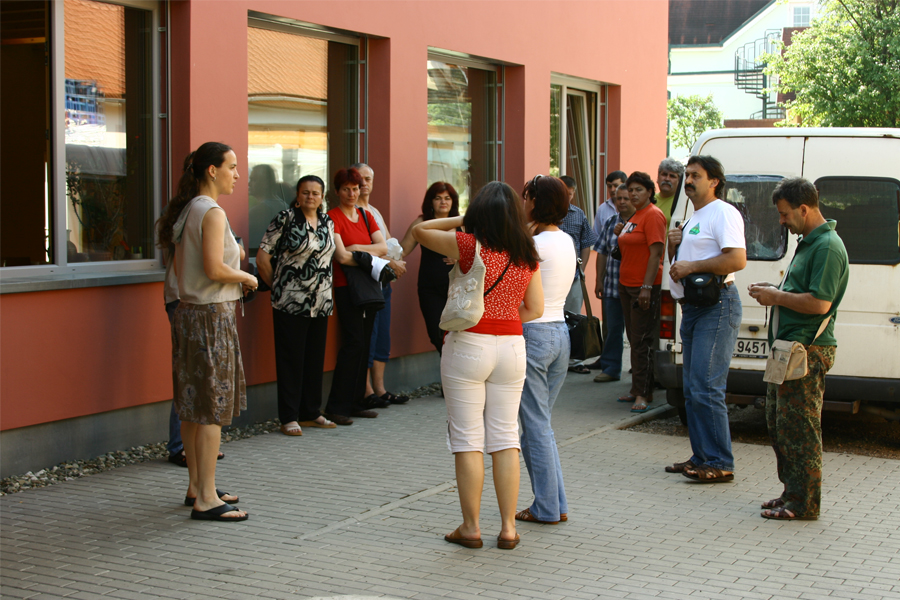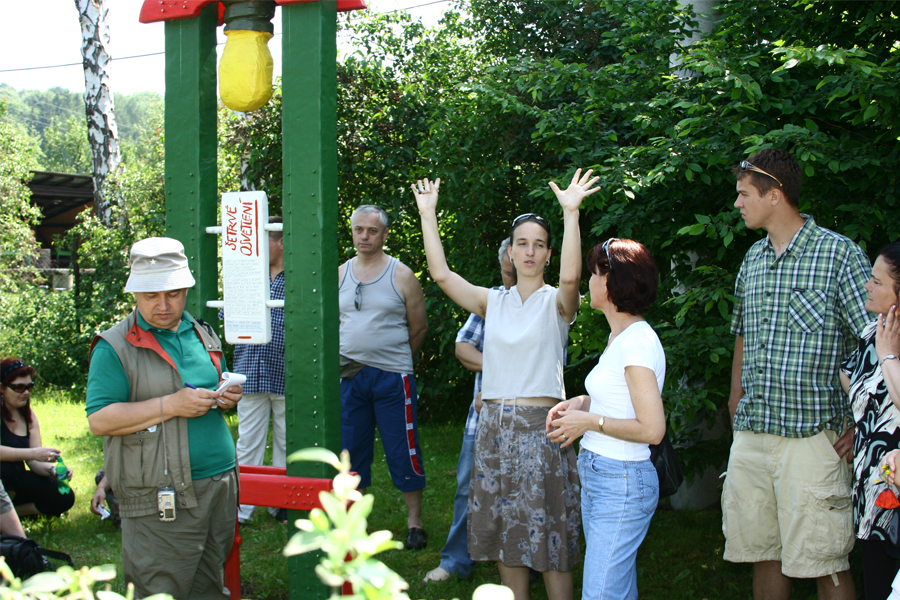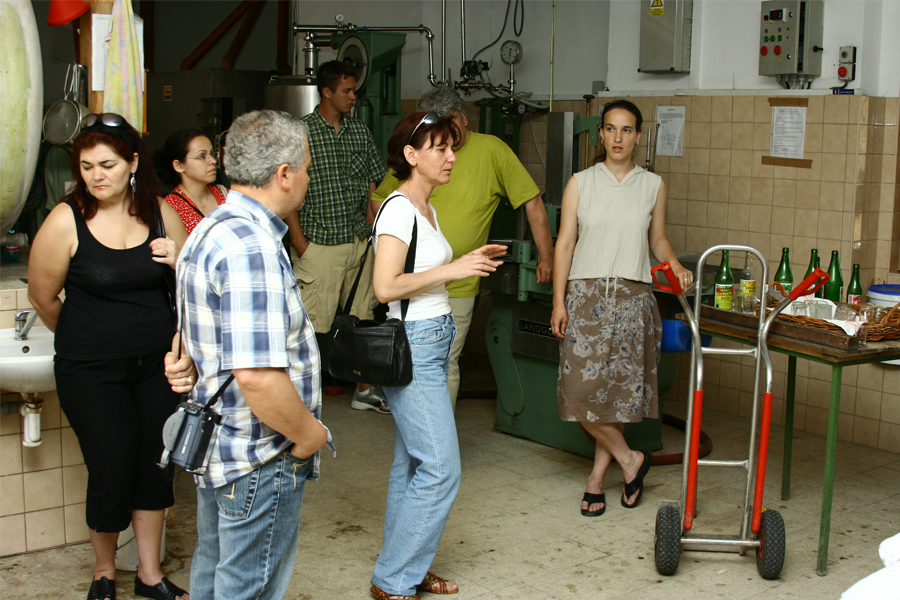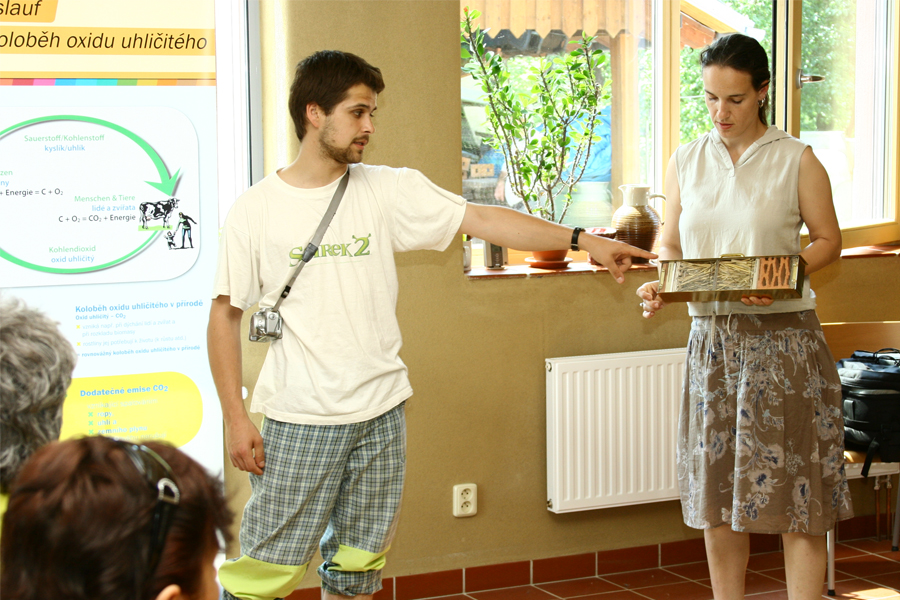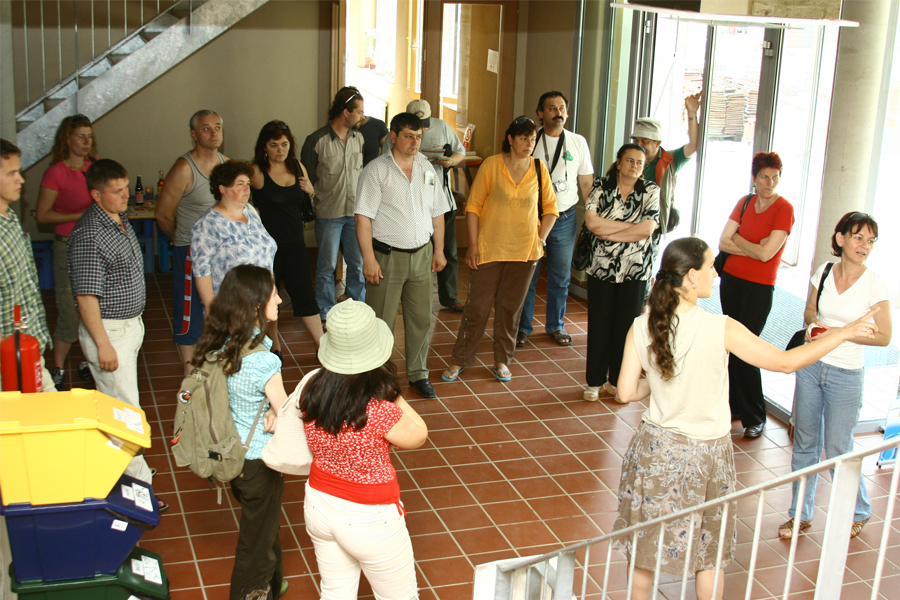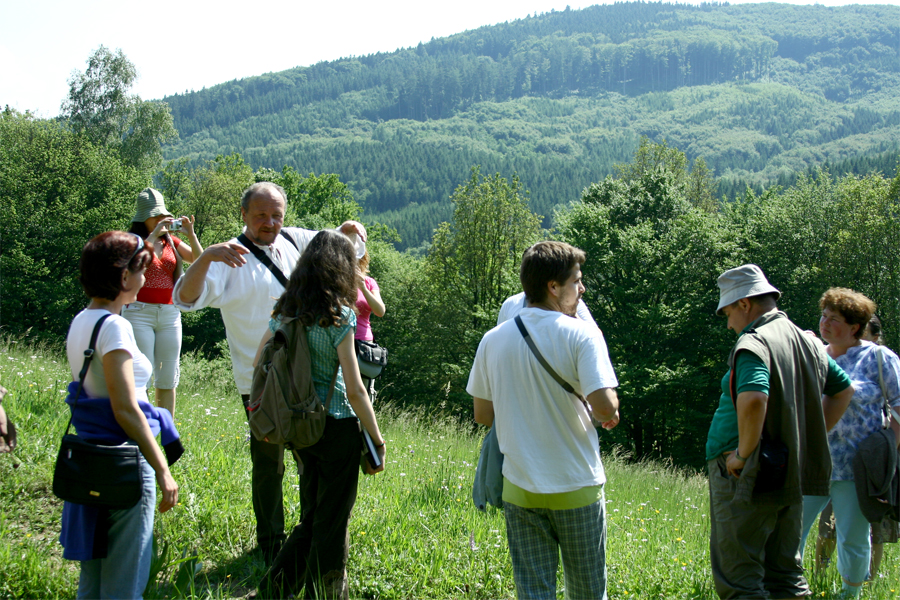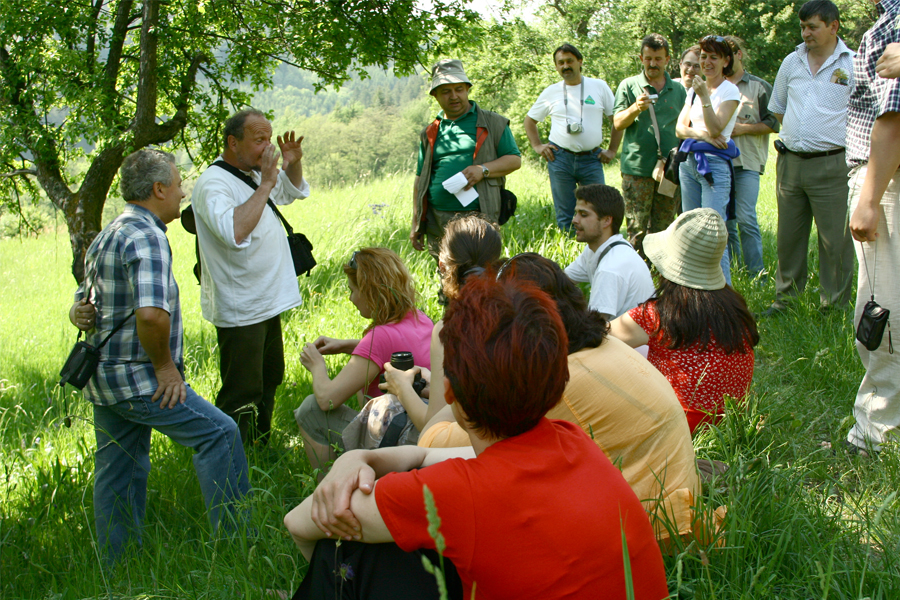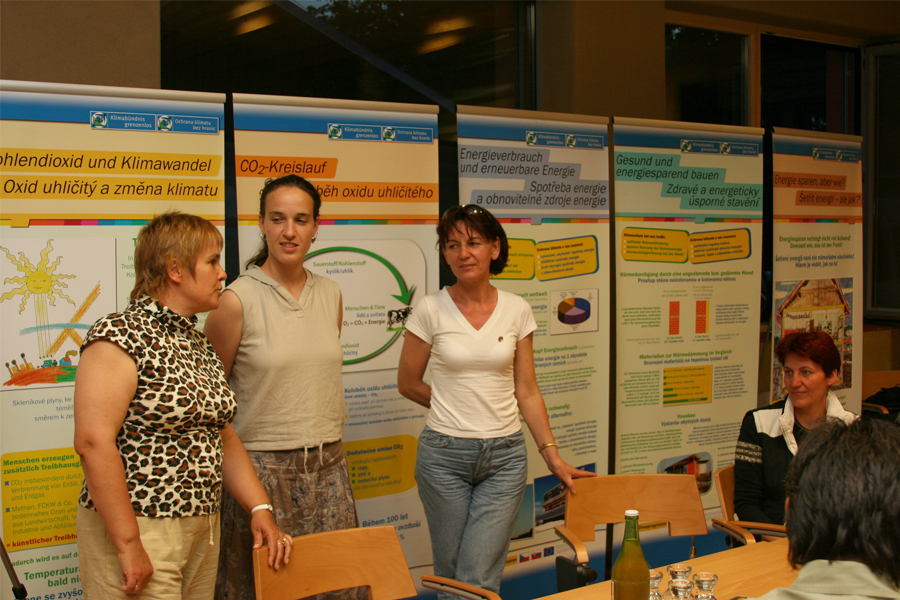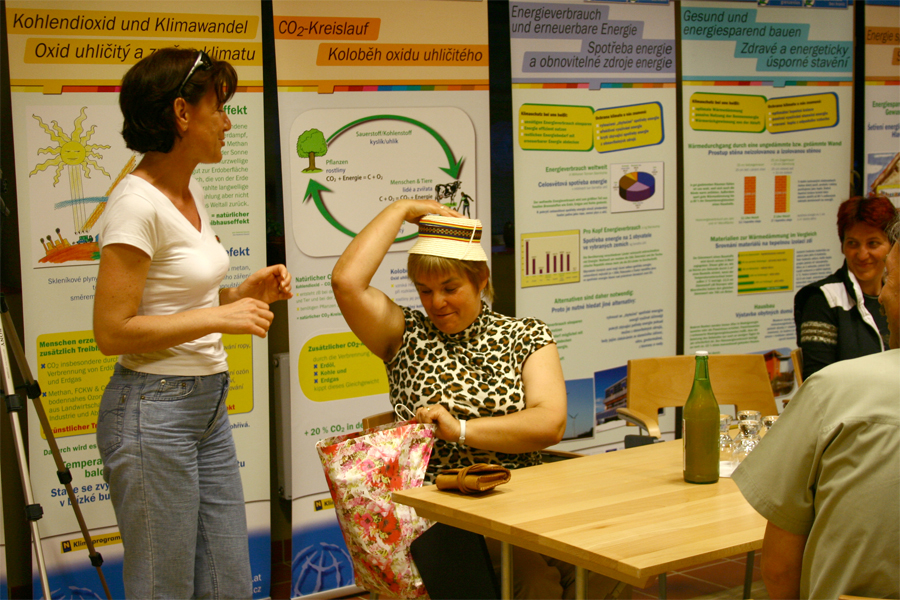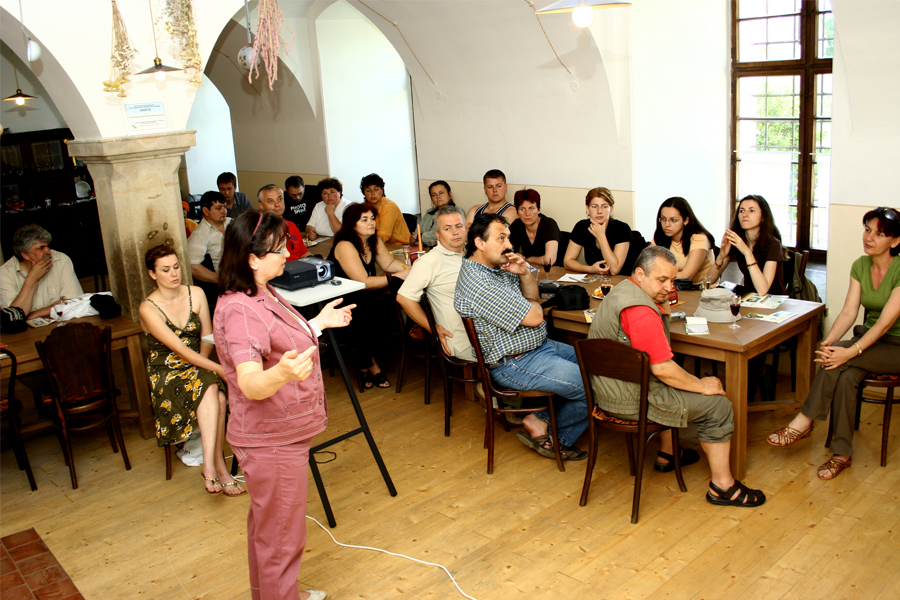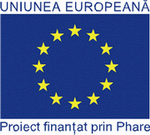Goal of the project is to involve the non governmental sector in Maramures in the integration of related EU environmental acquis concepts and standards within the agricultural practices of rural communities, aiming at natural and semi natural ecosystems of grassland habitats and mountain pastures.
Approach of the project:
- Building of local capacities for promotion and implementation of agri-environmental standards on hill and mountain pastures, through organizing of training course and experience exchange for representatives of 7 NGO’s active in the field of environmental protection and sustainable development in Maramures as well as for representatives of local authorities from the 7 communes targeted by the project;
- Increase of awareness and knowledge of farmers from the 7 rural communities on existent agro-environmental regulations by organizing public meetings for information dissemination on agri-environmental standards (brochures and posters delivered to participants);
- Conservation action planning for grasslands in the 7 communes – participatory exercise involving farmers, landowners, local authorities and NGOs.
Results:
- 16 representatives of 7 NGOs active in the field of environmental protection and sustainable dvelopment in Maramures are trained on agri-environmental standards and measures: Asociatia Confluente din Vadu Izei, Asociatia Leii din Sisesti, Asociatia Profesionala GeoMMed, YMCA Baia Mare, Asociatia Valea Verde din Sighetul Marmatiei and Asociatia EcoLogic;
- 21 stakeholders, representatives of 7 NGO’s and 7 local authorities learnt from successful projects implemented in similar geographic areas in the White Carpathians, the Czeck Republic;
- Biodiversity Alliance Network established – support framework for NGO’s and local authorities;
- More than 1500 community representatives from 7 communes are informed on agri-environmental standards and payment schemes, public meetings organized and leaflets and brochures disseminated in order to have communities informed;
- ~ 140 community representatives involved in volunteer work within the process of participative planning;
- 7 Conservation Action Plans for biodiversity conservation of conservation designed by using a participatory approach for all the 7 communities involved in the project;
- Community groups well trained and experienced, capable of planning and implementing similar initiatives;
- Environmental concerns are introduced in agricultural policies and practices at local and county level;
- More responsible communities ready to meet the challenges of the Common Agricultural Policy;
- Project activities and results are disseminated – international conference in Bucharest and on the web pages of project partners;
- Local network Alliance for Biodiversity, in contact to CERI Carpathian Ecoregion Initiative.
Publications:
- Planning of conservation actions for semi-natural and natural pasture ecosystems
- Agro-environment-Rural development-Biodiversity conservation (brochure)
Partners:
WWF Danube Carpathian Programme
The project was implemented with financial support from: PHARE Programme 2004 Civil Society, 2nd Component- Adoption and implementation of Community Acquis in the period 01.11.2006-30.11.2007.
